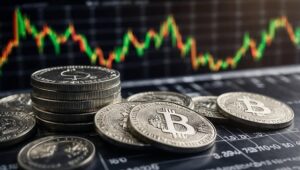
Periods of military conflict bring massive uncertainty to financial markets. While equities often react with volatility and currencies shift rapidly, certain commodities tend to rise in value during times of war. These price movements are not random, they reflect changes in demand, supply disruptions, and investor behavior. For traders involved in commodities trading, understanding which assets historically hold up well during conflict can be a critical advantage.
Energy Commodities Lead in Volatility and Demand
Oil and natural gas are typically among the first commodities to respond to war. Military operations require fuel, and geopolitical tensions often arise in regions that are key producers. Any threat to supply, whether through sanctions or damaged infrastructure, can push prices sharply higher.
Wars in oil-producing areas such as the Middle East have repeatedly caused spikes in crude prices. Beyond immediate needs, the fear of future supply cuts tends to drive speculative buying. Traders in commodities trading often watch troop movements and diplomatic talks as closely as they monitor charts.
Natural gas follows a similar pattern, particularly in regions where pipeline infrastructure is at risk. European conflicts have shown how dependent economies are on stable energy flows, and how quickly prices can escalate when those flows are disrupted.
Precious Metals Offer a Safe Harbor
Gold has long been considered a hedge during uncertain times, and its performance during war reinforces that reputation. Investors often turn to gold when fear dominates markets. The physical nature of gold and its historical value make it appealing when currencies are unstable or when global politics seem unpredictable.
Silver also benefits, though to a lesser extent. While silver has industrial applications, it still acts as a partial store of value. Both metals often see increased demand from central banks, institutions, and individual investors during conflict. In commodities trading, gold becomes a core asset when traditional financial systems appear vulnerable.
Grains and Food Staples Reflect Supply Disruption
Warfare affects agriculture by disrupting planting, harvesting, and transport. When major producing countries become involved in or impacted by war, grain prices often climb. Wheat is particularly sensitive due to its global importance as a staple crop.
The Russia–Ukraine conflict demonstrated how war can block exports from a key agricultural region. Prices for wheat and sunflower oil surged, affecting global food security. For traders in commodities trading, monitoring conflict zones with agricultural output is essential for anticipating shifts in pricing.
Industrial Metals Respond to Supply Constraints
Copper, aluminum, and nickel can all be impacted by war, especially when conflict touches mining regions or disrupts global trade routes. Military buildup can also increase demand for certain industrial metals used in vehicles, weapons, and infrastructure.
Nickel, for example, has seen increased relevance due to its use in both steel production and electric vehicle batteries. If a conflict interrupts mining operations or increases state-level demand, prices often reflect that pressure. Traders in commodities trading follow defense spending and supply chain updates to anticipate movements in these markets.
Understanding Context Is Key
Not all wars are the same. The location, participants, and global dependencies involved determine how specific commodities will behave. For example, a conflict in the Middle East may impact oil more than agriculture, while a war in Eastern Europe might affect both energy and food.
Traders must also consider how government policies, such as export bans or sanctions, influence prices. These policy decisions often come quickly during wartime and can shift market dynamics overnight.
While war is never desirable, it is a reality that reshapes markets. Commodities reflect the world as it is, not as we wish it to be. For professionals involved in commodities trading, being prepared and informed makes all the difference when volatility spikes and headlines dominate.

